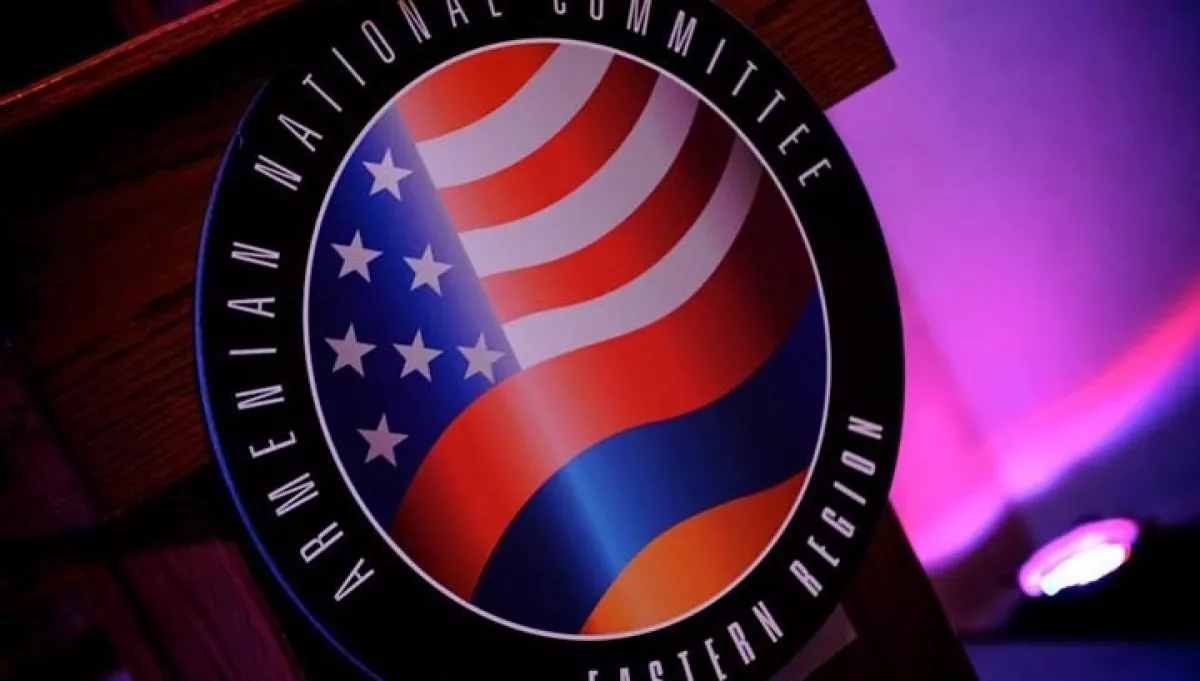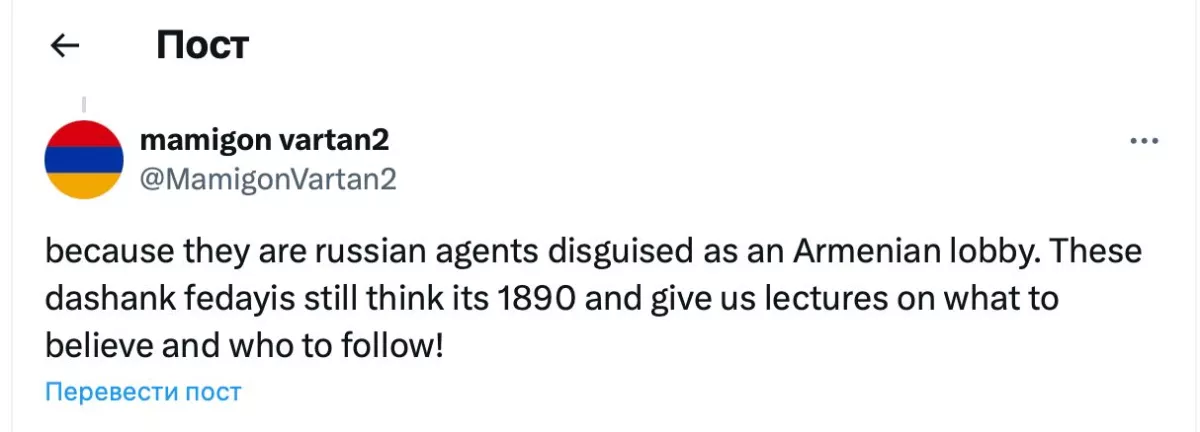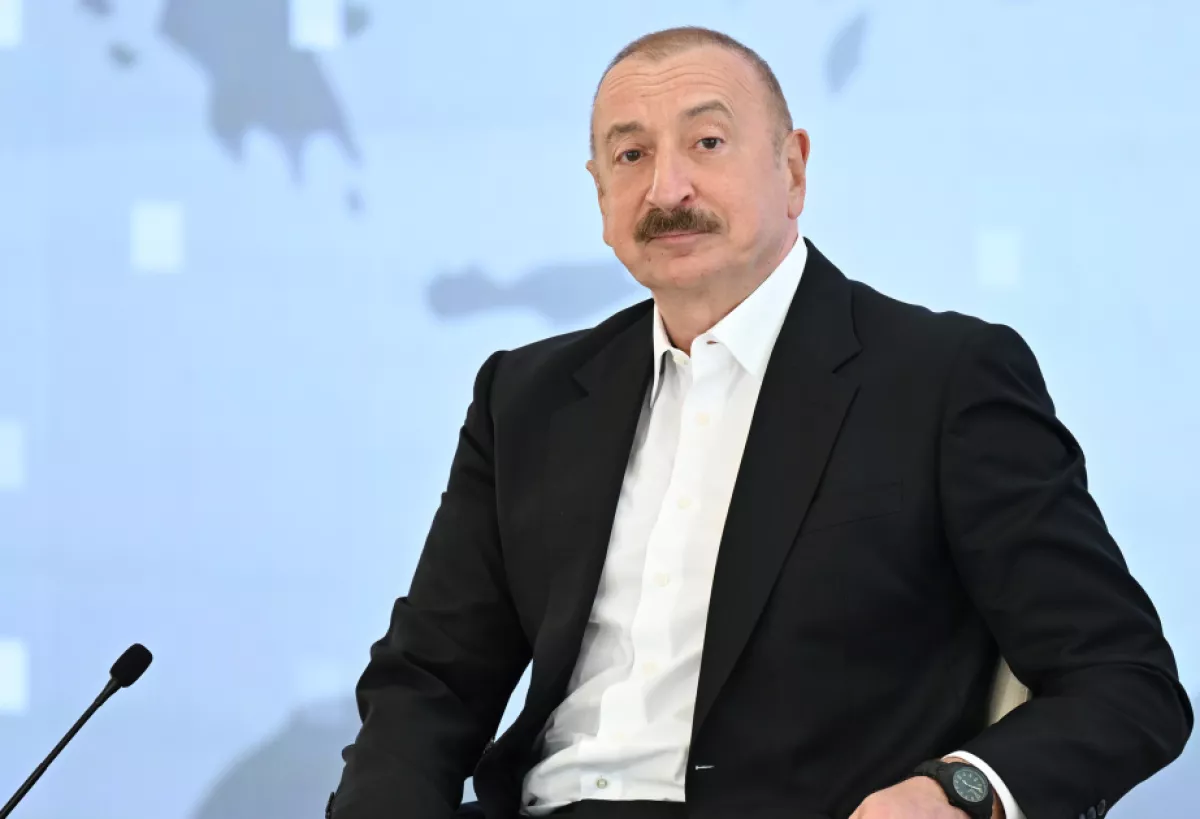The swamp named after Adam Schiff How murky waters feed the Kremlin’s interests
Russia’s interference in the internal affairs of other states has long been a strategy calculated to span years, sometimes even decades. Today, as traditional methods lose their effectiveness or become too predictable, Moscow increasingly resorts to softer forms of pressure: through proxies, ideologically aligned groups, or third parties. This approach is particularly effective where interference does not appear as such, but is instead presented as civic activism, a human rights agenda, or ethnic solidarity. It is precisely in this light that one should view the actions of the Armenian lobby in the United States — a force deeply intertwined with domestic American political processes, yet ultimately serving the geopolitical architecture promoted by Russia.
Historically, the lobbying efforts of the Armenian diaspora have been among the most organised and persistent in the United States. Organisations such as the Armenian National Committee of America (ANCA) present themselves as advocates for civil society, promoting the rights of Armenians and supporting Armenia as a U.S. partner. However, behind the façade of human rights rhetoric, a different motivation is increasingly coming to light: the promotion of conflict-driven agendas aimed not at compromise, but at prolonging instability—particularly in the South Caucasus.
Today, Armenia proclaims its desire for peace with Azerbaijan and is engaged in negotiations. Yet diaspora structures in the U.S. stubbornly maintain that talks are unacceptable, that compromise amounts to capitulation, and that any step toward Baku must be met with staunch resistance. This creates a contradictory dynamic: while official Yerevan is gradually moving toward peace, segments of the diaspora in the West—especially in the United States and France—continue to push for confrontation.

Despite its maturity, the American political system remains susceptible to influence through mechanisms of public pressure, electoral support, and the cultivation of voting blocs. ANCA actively exploits these tools. It sponsors trips by senators and congressmen to Armenia, initiates resolutions condemning Azerbaijan, obstructs efforts to adopt a balanced approach to the conflict, and does not shy away from criticising the State Department when it adopts a neutral stance.
At first glance, all this may seem like part of standard political advocacy. Yet behind this appearance lies a far deeper issue: the narratives and actions promoted by the Armenian lobby align suspiciously well with Russia’s strategic interests.
The separatist entity in Karabakh, now consigned to the dustbin of history, was supported for decades primarily by the Kremlin. Russian military, humanitarian, and ideological efforts were deliberately aimed at keeping the conflict unresolved—simmering in a state of limbo. This served as a strategic lever for Moscow—over Armenia, over Azerbaijan, and over the West, which was forced to reckon with Russia’s so-called “peacekeeping” role.
When certain U.S. lawmakers—under pressure from ANCA—began lobbying for the recognition or funding of this very entity, they were effectively advancing the interests of the same geopolitical actor they themselves identify as Threat No. 1 (i.e. Russia). This is not a hypothesis—it has already become the subject of public debate. In 2022, the Boston Herald published a widely discussed article with a headline that posed a direct question: “Why are members of Congress lobbying for a pro-Russian separatist republic?” The article underscored that this was a structure fully embedded in Moscow’s post-Soviet sphere of influence, with its so-called “independence” being little more than a façade.

The role of individual politicians in this process deserves particular attention. One of ANCA’s chief allies in Congress is Senator Adam Schiff, a representative from California. He is known as one of the most vocal and consistent advocates of the Armenian agenda. Schiff has repeatedly introduced resolutions against Azerbaijan, called for sanctions, and accused Baku of “aggression.”
But what is even more noteworthy is this: for years, Schiff was also one of the leading voices behind accusatory rhetoric against Russia—especially in the context of the 2016 U.S. presidential election and the investigation into alleged “collusion” between Donald Trump’s campaign and the Russian government. As a Democrat, Schiff publicly alleged such collusion with force, conviction, and theatrical flair.
Over time, however, it became clear that the vast majority of his claims during that campaign were unsubstantiated. The investigation produced no confirmation of the accusations. No legal or political consequences followed. Yet the damage was done—American society became even more polarised, trust in institutions was undermined, and Trump was left with a reputational stain that lingered for years, despite the lack of solid evidence.
Ironically, this very outcome—chaos, division, mistrust—is the hallmark of classic Russian information and political operations. Not the planting of literal agents, but the creation of an atmosphere in which truth becomes indistinguishable from falsehood. Where suspicion outweighs evidence, and emotional mobilisation eclipses institutional stability.
Incidentally, there is more to say about the close ties between Armenian diaspora and political organisations abroad, and Soviet/Russian intelligence services. After World War II, Soviet state security re-established contacts with Armenian organisations abroad—including the Dashnaktsutyun (ARF)—as part of a broader strategy to harness Armenian nationalist sentiment in exerting pressure on Turkey in the international arena. These diaspora groups were viewed as key instruments in countering Western influence, including in the United States.
Moreover, by leveraging the relatives of those Dashnaks who agreed to resettle in Soviet Armenia, the USSR’s security services built networks of spies and agents of influence that were effectively used for Soviet purposes. As acknowledged in his memoir Spymaster by former KGB general and defector Oleg Kalugin, the Soviet Union’s main intelligence agency deliberately infiltrated the Dashnaktsutyun:
“…we most thoroughly infiltrated was the Armenian exile group, Dashnak Tsutyun. Once it had been a staunchly nationalist group that campaigned for an independent Armenian state. Over time, we placed so many agents there that several had risen to positions of leadership. We succeeded in effectively neutralizing the group, and by the 1980s Dashnak Tsutyun had stopped fighting against Soviet power in Armenia. The organization and some of its members had been coopted by the KGB.
Years later, in 1992, when Dashnak Tsutyun leaders and other Armenian nationalists were attacking Armenian President Levon Ter-Petrosyan for not being sufficiently nationalist, I got a call from the president, with whom I had had several friendly conversations, at my Moscow apartment. He asked me for help in fending off the attacks by Dashnak Tsutyun, and I provided him and the Armenian press with information about the KGB’s deep penetration of that émigré group in the 1970s.”

The figure of Schiff thus takes on a completely different meaning. In fact, whether in the context of elections or the South Caucasus issue, his actions strikingly align with the interests of those he claims to be “fighting against” — much like the well-known proverb that “the thief cries ‘Stop thief!’ the loudest.” He opposes a peaceful scenario in the South Caucasus not so much out of a desire for escalation, but because his political connections and ideological commitments push him toward actions that objectively coincide with the interests of those invested in maintaining managed instability.
This is not speculation, but a matter of well-known patrons behind prolonged regional conflicts. It is precisely one of those cases where an impartial look at the outcomes makes the conclusions clear. By the way, in intelligence jargon, especially valuable operatives are often called “sleepers”—“sleeping spies” or agents of influence.
Interestingly, this is beginning to be recognised within the Armenian community itself. On social media, particularly within the Armenian segment, criticism of ANCA and radical Dashnak groups is increasingly vocal. One user writes: “They are Russian agents disguised as the Armenian lobby. These Dashnak fedayis still think it’s 1890 and give us lectures...”

This phrase may be somewhat exaggerated, but it reveals a telling symptom. Even within Armenia itself, there is growing awareness that political activism presented as a “struggle for national interests” increasingly runs counter to Armenia’s actual priorities and follows a logic shaped in Moscow.
Modern proxy operations differ in that they no longer require shared flags, language, or citizenship. The Kremlin long ago realised that to achieve its goals, it does not need allies by origin — only alignment of interests. In this logic, partners are chosen not by biography or flag, but by the outcome they help secure. And if that outcome is the prolongation of conflict, rising tensions, and undermining trust in the United States, then that is a strategic victory.
Recently, at the 3rd Shusha Global Media Forum, Azerbaijan’s President Ilham Aliyev stated: “We in Azerbaijan, of course, are glad that he won, for many reasons, and, of course, we wish him to see the matter through to the end, especially with regard to the “Washington swamp”, to drain it completely.”

This definition is not merely a metaphor. Within this “swamp,” for years, those whose actions—though cloaked in seemingly noble slogans—actually obstruct peace, advance the interests of third countries, and systematically distort the agenda to serve external patrons have entrenched themselves.
The process of “draining” must begin precisely with those individuals and structures whose activities, while outwardly respectable, have in reality served foreign agendas and contradicted the interests of, among others, the United States itself.
Urgent, targeted, and institutional efforts are needed against them—and these efforts must be set in motion without delay.








